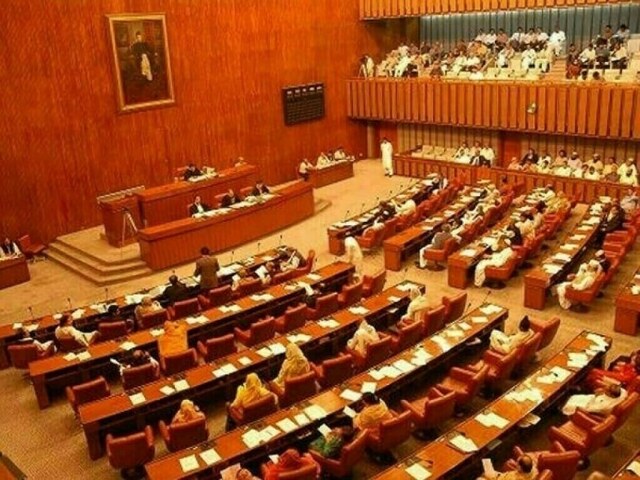ISLAMABAD: The Senate Standing Committee on Finance has asked Secretary Ministry of Finance and Governor State Bank of Pakistan (SBP) to appear before the committee in its next meeting and give details about the latest salary pay packages of Governor/Deputy Governor SBP.
Senator Saleem Mandviwalla chaired the Senate Standing Committee on Finance and Revenue held on Wednesday at Parliament House to discuss the “The Virtual Assets Bill, 2025”.
The Senate Standing Committee on Finance has also raised question about the fixation of salary of Governor SBP and the Deputy Governor through their Board of Directors.
Ministry of Finance officials distanced themselves when the Senators raised questions on salaries in the SBP, arguing that the Secretary of Finance, being a member of the Board of Directors in the SBP, might have expressed his opinion, but the Ministry of Finance had nothing to do with fixing salaries in it.
Senator Anusha Rahman from PML (N) raised this issue during the Senate Standing Committee on Finance proceedings.
Senator Anusha Rahman added that she would propose changes in the laws for introducing a uniform mechanism for fixing salaries and perks. There should be no discretion in fixing their salaries by themselves, she added.
Senators Mohsin Aziz and Faisal Sabzwari, argued that it was the Board’s prerogative to fix the salaries under their respective laws, and the next meeting should be held in camera to discuss this issue.
The committee was informed that the Board of Governors of the SBP was authorized to fix their salaries.
The committee members demanded a legal amendment to ensure that even the country’s top banker cannot decide his own pay, with Senator Anusha Rahman insisting that not even the President or Prime Minister fix their own salaries.
The issue of salary increase of Securities and Exchange Commission of Pakistan officials was again taken up by the committee.
The committee members proposed a uniform policy covering salaries and privileges across all 19 regulatory bodies.
The committee continued its deliberations on the Virtual Assets Bill 2025, aimed at regulating digital currencies. Finance ministry officials said Pakistan already ranked among the top 10 countries in virtual asset investment, but the absence of regulation had left the sector in a “grey area.”
SBP’s Executive Director, Dr. Inayat Hussain, said options under consideration were either banning or regulating cryptocurrencies, noting that “the younger generation has more capacity to deal with these assets.” Senators, however, warned that crypto was already being misused for Hawala, Hundi, kidnappings and terror funding.
Senator Mohsin Aziz pointed out that abductors now demand ransom in gold or crypto, not cash. “Banned outfits in Sindh and KP are also using this channel for foreign funding,” he warned. Senator Dilawar Khan asked what benefit such a law would bring to Pakistan’s economy, arguing that lowering tax rates would do more to raise revenue.
Earlier, Finance Secretary Imdadullah Bosal said the bill was designed to regulate virtual assets, improve transparency, and curb illicit financial flows—not to boost tax collection or impact loans. Mandviwalla added that regulation was urgently needed since crypto was already driving capital flight through informal channels. The committee carried out a clause-by-clause review of the draft bill and indicated it was likely to approve the refined version in its next meeting.
The committee had a threadbare discussion on the Bill titled “The Virtual Assets Bill,2025”. The Bill aimed to regulate virtual assets following established International practices. While pointing out various discrepancies in the Bill, Chairman Committee categorically stated that the bill shall not contain any discretion and it shall focus only on providing level playing field. He further called for a streamlined method for registration of companies in order to ease and attract the investors.
The committee, after rigorous deliberations on the bill, pointed out various discrepancies and weaknesses in the draft and proposed different amendments to address them.
Copyright Business Recorder, 2025


